# 19 Living on a Sail Boat in Amsterdam
On small spaces, the cool yet industrial North, and being rocked to sleep
I grew up on a boat. Or maybe that’s an exaggeration and I should say that in my youth, I spent many long weekends and pretty much all my summer holidays on a yacht.
My father was a sailor, not by profession but in life. He was the happiest when cruising waters and navigating wind. He liked the physical sensations of sailing and the temporary escape from society. “Sunshine on the water looks so lovely,” John Denver sang, and we with him.
Unlike his mother, who turned a 107 last Sunday, my father died young at the age of 53. We sold his yacht after he died, but when his youngest child (who was only 12 at the time) grew into a man, he bought a nearly identical boat, a Bavaria 35. He went on to install an electrical motor (to replace the dirty diesel), called his boat E-Vie, and got himself on the cover of a yachting magazine.
Both my brothers have inherited my father’s love for sailing. They’re capable captains and spent a fair amount of time on board. I can tie a cleat hitch knot and help out in a lock, yet I never learned to sail independently. Living on a boat that doesn’t leave the harbor, however, is something I can do, and when my youngest brother offered to dock his E-Vie in Amsterdam this summer so Daniel and I would have a place to stay, I gladly said “Yes!”
Environment
Living on a sail boat in Amsterdam is not as romantic as it may sound. We’re not docked alongside a picturesque canal, but in a rather industrial harbor in the North. Our view is of the oil platform repair wharf, which produces an unpleasant amount of noise and dust.
The water around us is filthy. The IJ River is considered swimmable, yet I’m pretty sure that the two Dutch girls who went skinny dipping in the dark had never seen the harbor’s water in daylight, with human turds floating among oil stains and plastic bags.
A redeeming factor of our neighborhood is the cool vibe. After the massive NDSM wharf stopped building ships, the structure was repurposed as a creative space for artists and startups. People take the free 15-minute ferry from Amsterdam Centraal to do workshops here, visit the flee market, hang out, and tour the Straat Museum.
Small Space Ballet (With Vocalized Intentions)
Daniel and I are experienced in living in small spaces, especially since our months in Japan. We’re good at moving around each other with grace. When I take a step forward and bend out of the way, he glides past me like a dancer, lightly touching me as he goes.
Here on the boat, where we block access to a drawer or door no matter where we stand, we also vocalize our intentions.
“Going to pass you now and enter the bow cabin to hang my towel,” I will say. Or: “Reaching out to open the fridge and free the wine.”
If we don’t tell each other what we’re about to do, we run the risk of anticipating moves wrongly and bumping into each other.
Even when alone, we must be aware of potential harm. Getting up too quickly or wildly swinging an arm will certainly mean we meet the hard wood of our compact cabin. Living on a boat teaches us to be mindful of every move we make.
Boat Yoga
Living on a boat also gives new meaning to old yoga poses. Downward facing dog, for example, turns into a sort of bridge, spanning the width of the cockpit. And if balancing exercises such as tree and half-moon pose ever seem too easy for you, I invite you to try them on a floating dock or a bobbing ship, so you can quickly learn that keeping steady is not such a simple feat after all.
You will also fold and stretch yourself in innovative poses when cleaning crumbs off the floor or scrubbing the deck. Boat yoga, in other words, is unavoidable.
Being Rocked to Sleep
It’s true, the spaces are cramped. None of the three cabins on board, will comfortably fit people taller than 1m80 (5ft9). Your feet ought to be close friends with the feet of whoever is lying next to you.
That said, I slept deeper and longer here than I have in years. I assume it’s the gentle rocking of the boat, the water moving about ever so slightly, and the creaking of the lines. Perhaps the sound of water is troubling for people with a weak bladder, yet for me it was like sleeping in a hammock. Nothing but warm childhood memories accompanied my dreams.
Harbor Lines
Not as steady as a clock, not as warm as a heart, not as resonant as a drum, but known like a melody and present like the wind is the sound of lines slapping against the masts of pleasure boats docked in the harbor, a sound signifying safety, at least to me, for it lulled me to sleep each night after a day of sailing or bobbing on the Dutch waters during the long summers I spent on my father's yacht, and each time I come upon a port on my travels in whatever region of the world, and I hear the lines slapping in the breeze, accompanied at times by the masts' mournful humming, I feel this sense of home away from home, which is not as exciting as a dive in the Pacific Ocean, not as cozy as a campfire in the Sahara dunes, not as wondrous as the brilliant green rice paddies in Northern Vietnam, but which is like an anchor, lodging deeper than my connection to the places where I grew into myself and promising me that life is continuous between my movements and my breaks and I am forever on my way.
“Harbor Lines” was originally published by The Diagram.
Related Posts
Time to Say Goodbye
Tomorrow, my brothers are coming to Amsterdam to sail the boat back to Schokkerhaven on the IJsselmeer. Rain is in the forecast, but I’m looking forward to spending this extra time together.
Next week, I’ll have one more essay on Amsterdam coming. It will be on tolerance, rightwing politics, and overtourism. See you then!
Best,
Claire
P.S. All photos (except for the yachting magazine cover) are made by Daniel. You can tell him how awesome his work is in the comments, which I will make him read.


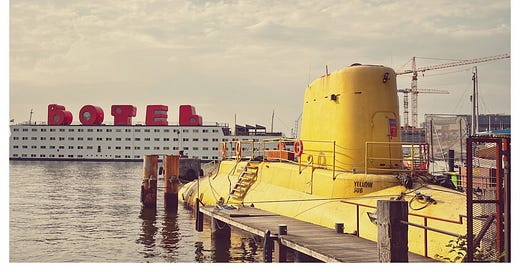



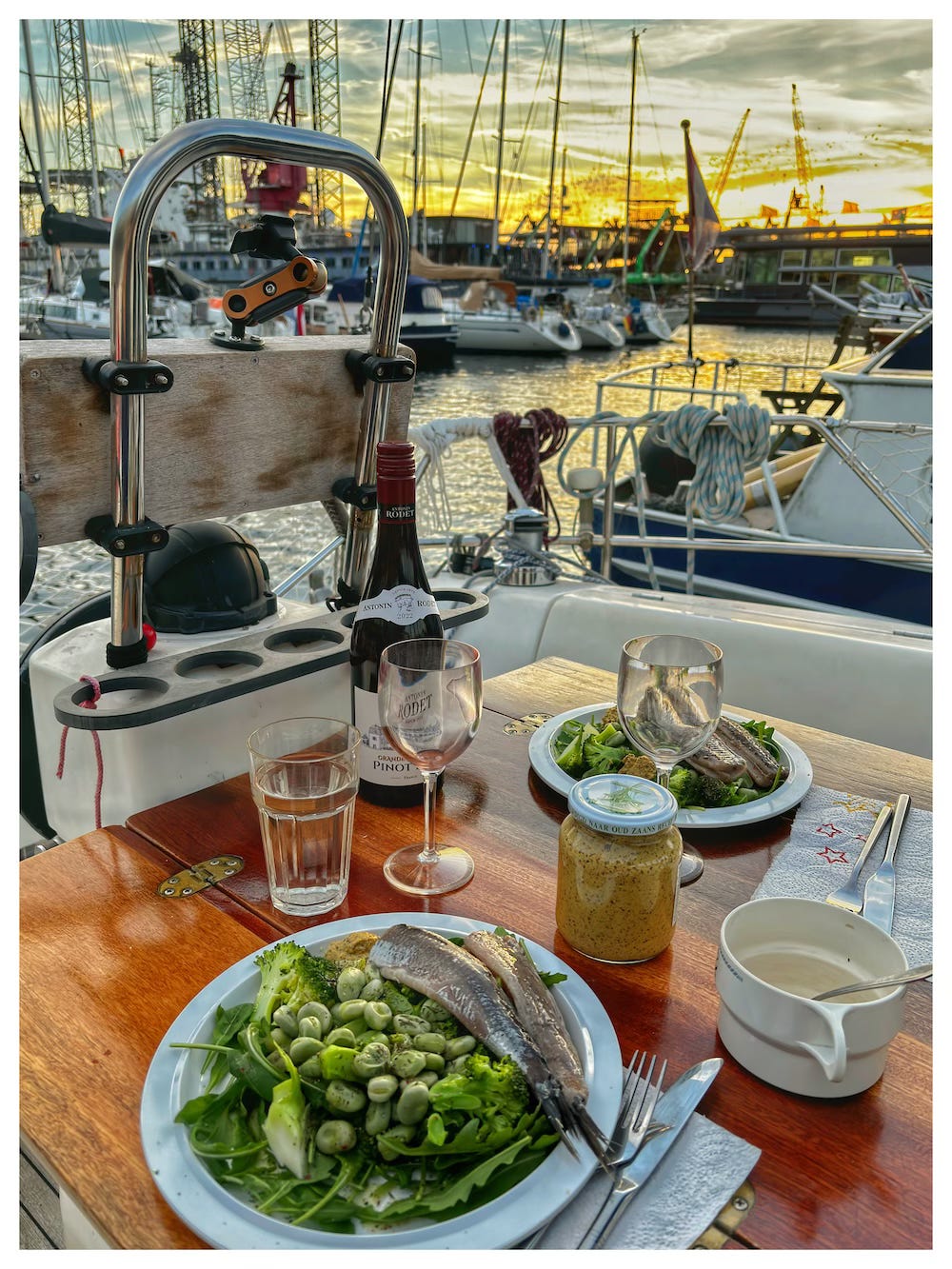
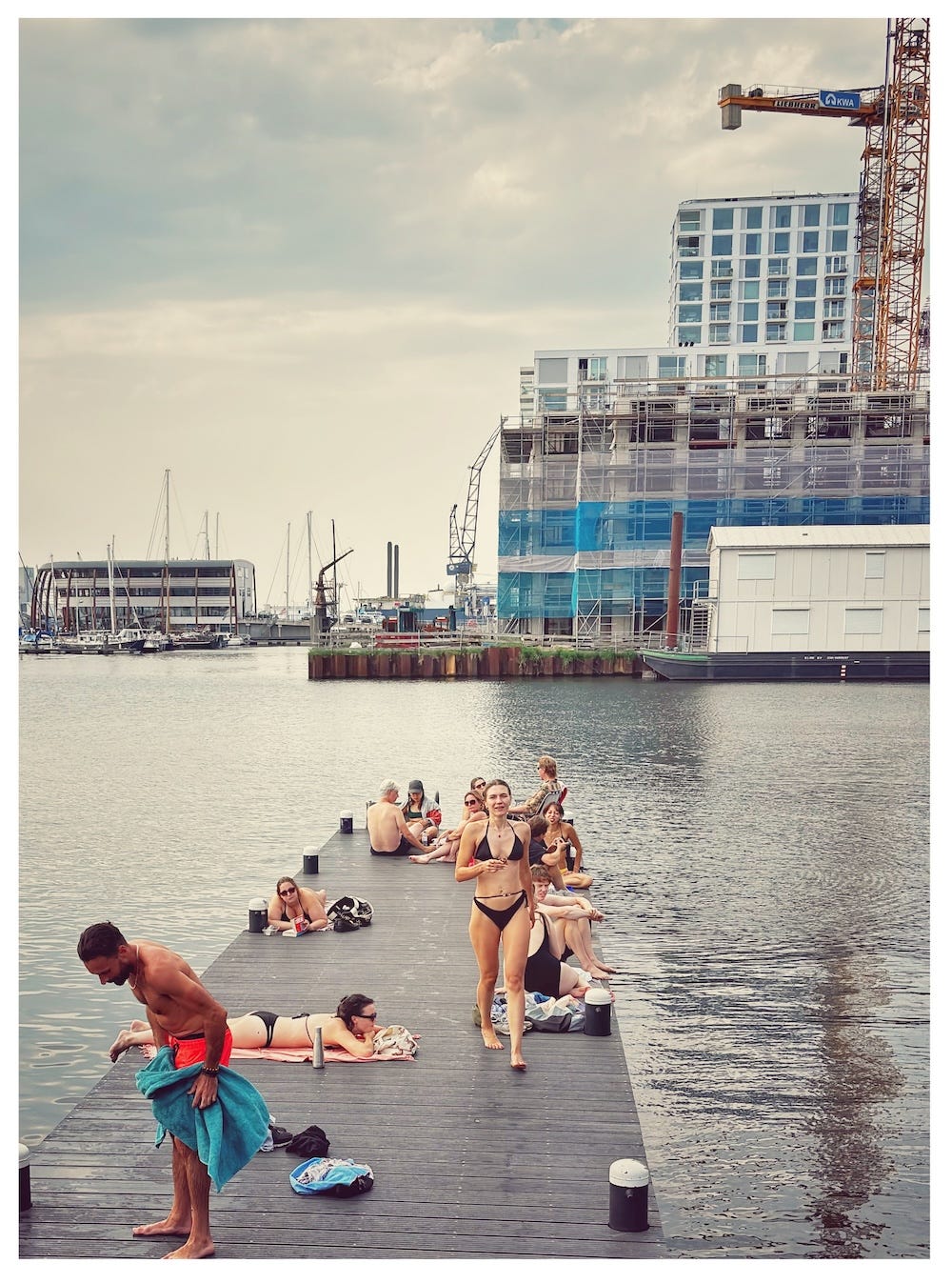
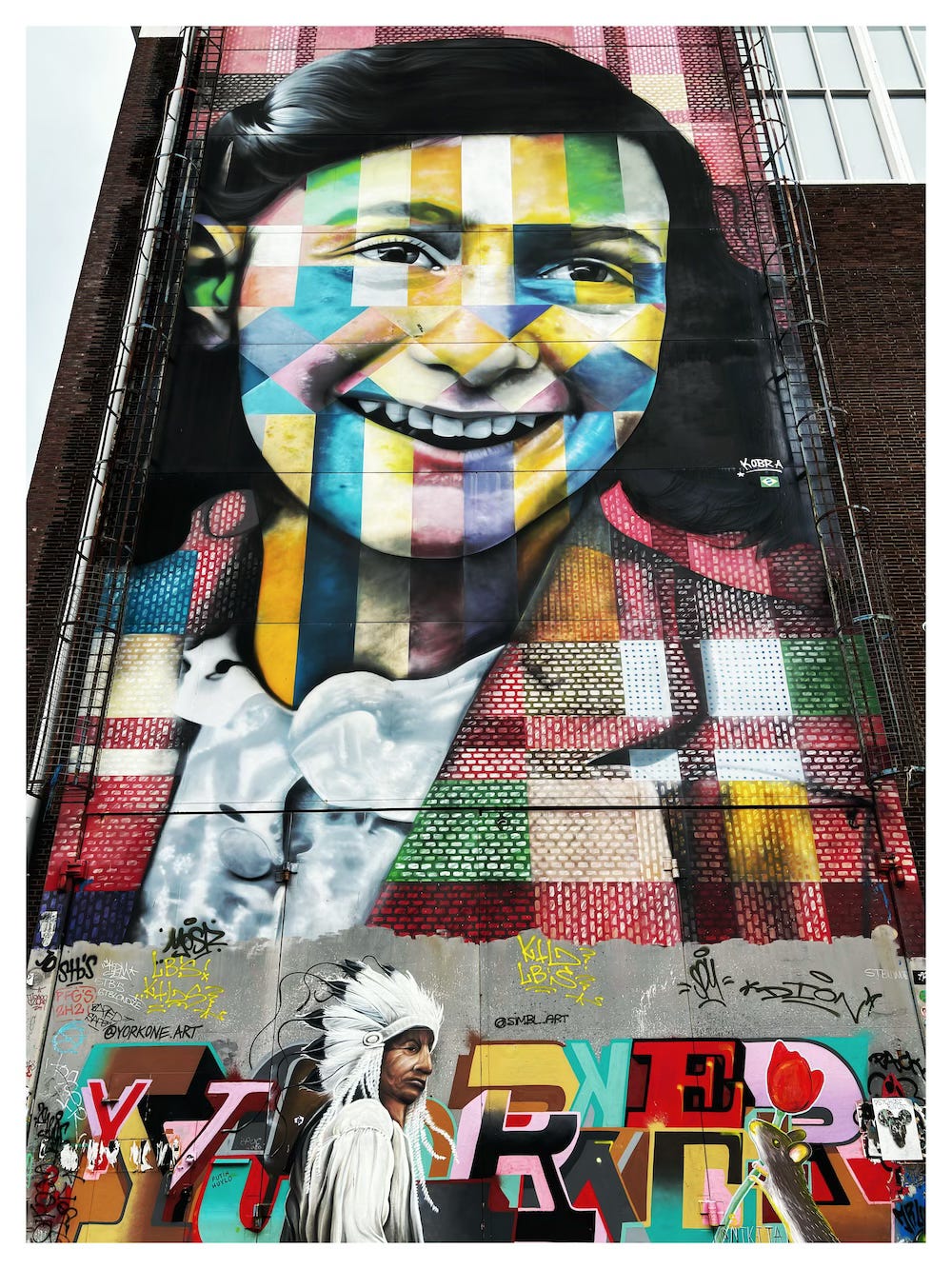
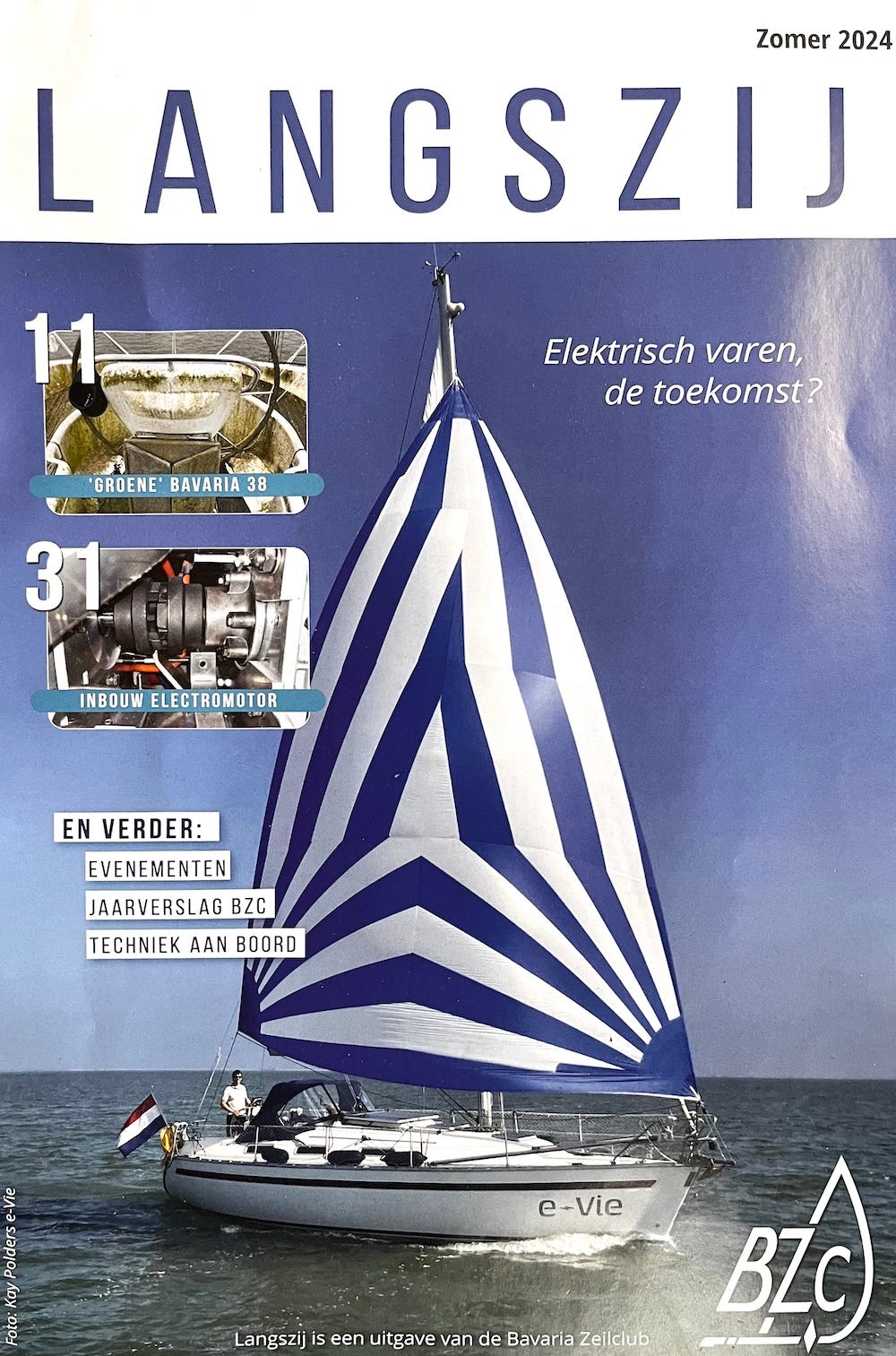
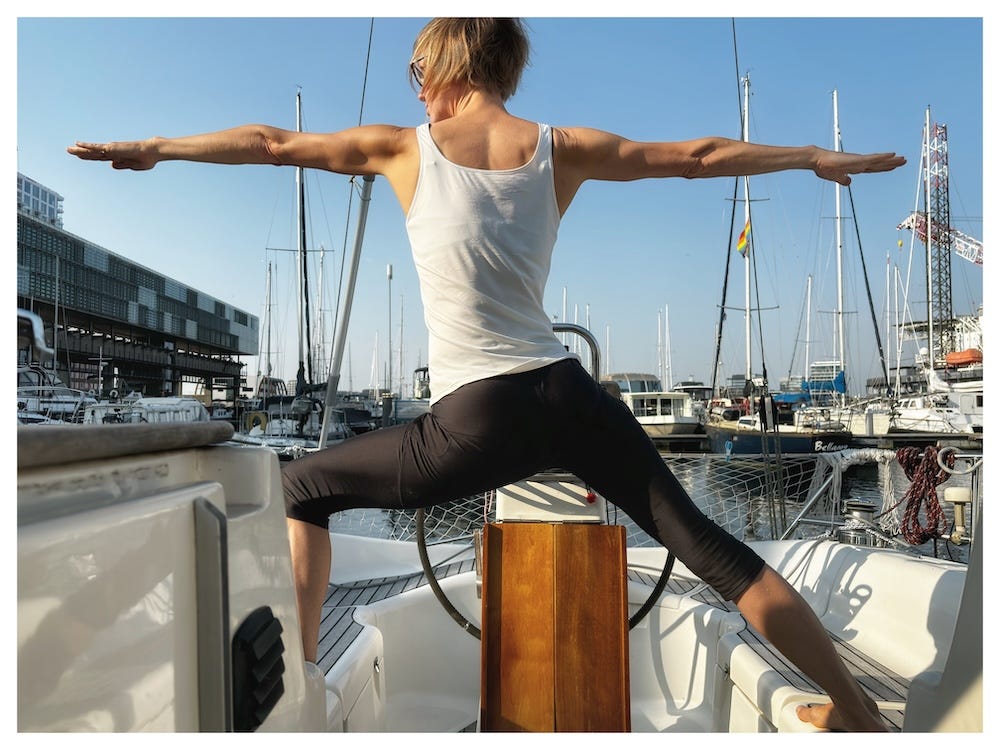
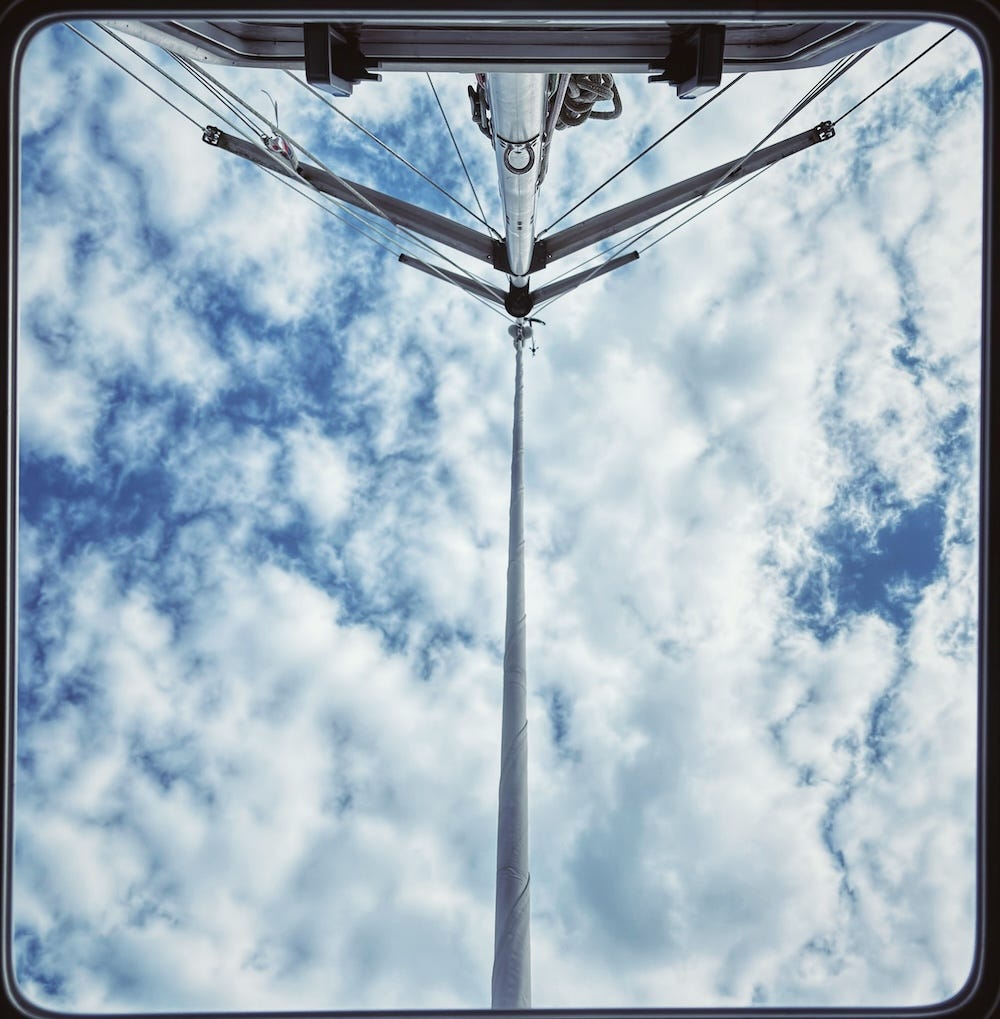
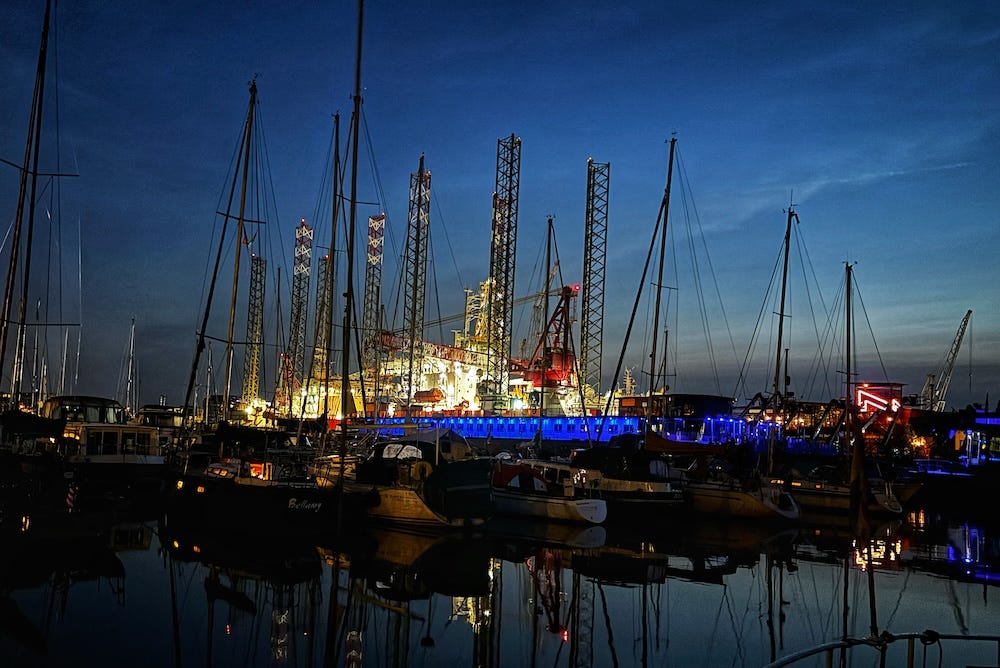
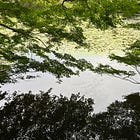
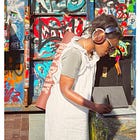
First of all, and for Daniel: the photographs in this piece are breathtaking, each more compelling than the next, often bordering on the abstract. Bravo, Daniel, and deep thanks.
Claire, this is a beautiful story, almost mystical for the way your voice comes from the body - the way you inhabit and move in the space, how the sensations affect your sensorium, and how you are transported back to your childhood.
I’ve often experienced the way I move through life as exactly the way I did as a child, as if from inside a vessel that never ages and barely changes despite aging and changing. There is a sort of inner I and inner eyes that are deeply embedded inside, and this is how I felt reading your piece. It’s hard to explain, which js frustrating but maybe it has to do with embodied sense memories: the sounds that lull you into deep sleep, the sensations that return - and return you to your childhood body. The juxtaposition between the comforting, almost magical memories, and the various unpleasantries of the present create a kind of scaffold that bends and breathes.
I could go on about why I love this piece but I’m feeling weak and need to rest. In closing, I want to say that the below section feels to me like its own prose poem:
“Not as steady as a clock, not as warm as a heart, not as resonant as a drum, but known like a melody and present like the wind is the sound of lines slapping against the masts of pleasure boats docked in the harbor, a sound signifying safety, at least to me, for it lulled me to sleep each night after a day of sailing or bobbing on the Dutch waters during the long summers I spent on my father's yacht, and each time I come upon a port on my travels in whatever region of the world, and I hear the lines slapping in the breeze, accompanied at times by the masts' mournful humming, I feel this sense of home away from home, which is not as exciting as a dive in the Pacific Ocean, not as cozy as a campfire in the Sahara dunes, not as wondrous as the brilliant green rice paddies in Northern Vietnam, but which is like an anchor, lodging deeper than my connection to the places where I grew into myself and promising me that life is continuous between my movements and my breaks and I am forever on my way.”
To your continuing to grow into yourself; to the promise of life continuous; to being forever on your way.
With love, and days,
Robin
So gorgeous. Wish I could be there, thank you, Claire, for letting us in. Just the right thing for my homesickness for Europe :-)